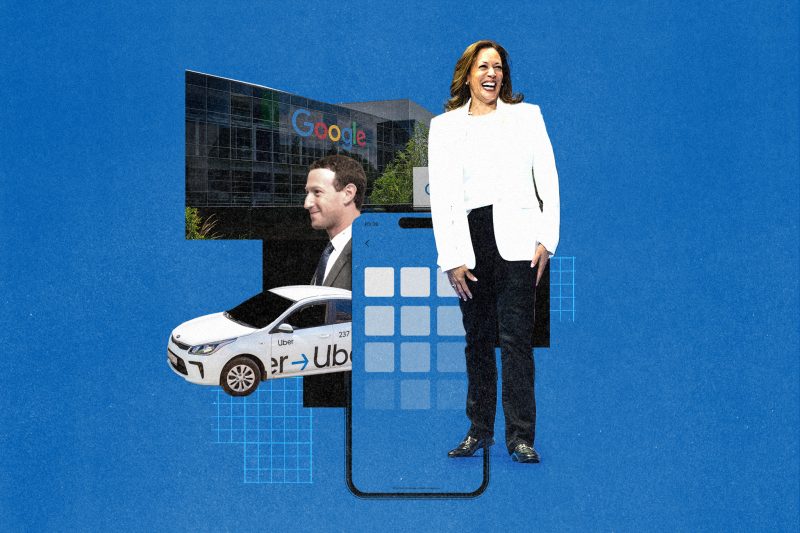Silicon Valley’s Loyalty to Kamala Harris: A Closer Look
The symbiotic relationship between Kamala Harris and the tech giants of Silicon Valley is a topic of growing interest and scrutiny. Over the course of her career in politics, Harris has fostered close ties with the tech industry, drawing on their support and resources to advance her political ambitions. In return, she has championed policies and initiatives that align with the interests of these powerful corporations. As she ascended the political ladder, from Attorney General of California to Senator and now Vice President of the United States, Harris has maintained a strong bond with Silicon Valley, raising questions about the nature of this relationship and its implications for governance and democracy.
Harris’s connections to Silicon Valley date back to her time as Attorney General of California. During her tenure, she forged strong relationships with tech executives, cultivating a network of powerful allies in the industry. These connections proved invaluable in her political campaigns, with tech companies providing substantial financial backing and strategic support. As Harris transitioned to the Senate and later to the Vice Presidency, she continued to enjoy the backing of Silicon Valley, leveraging their influence to fundraise and mobilize grassroots support.
In return for Silicon Valley’s loyalty, Harris has been a vocal advocate for policies that benefit the tech industry. She has supported initiatives to expand H-1B visas for skilled foreign workers, a critical issue for tech companies reliant on foreign talent. Additionally, Harris has been a proponent of data privacy legislation that strikes a balance between consumer protection and industry interests. Her positions on cybersecurity, intellectual property rights, and antitrust enforcement have often aligned with the preferences of Silicon Valley, earning her a reputation as a reliable ally in Washington.
Despite the benefits of Harris’s alliance with Silicon Valley, questions have been raised about the potential conflicts of interest and the influence of corporate money on policymaking. Critics argue that Harris’s close ties to tech companies may compromise her independence and lead to policies that prioritize industry interests over the needs of the public. The revolving door between government and Silicon Valley, with former tech executives joining the administration and policymakers later taking lucrative positions in the tech sector, has further fueled concerns about regulatory capture and corporate influence in Washington.
As Vice President, Harris faces the challenge of navigating the competing demands of her political responsibilities and her allegiance to Silicon Valley. The tech industry continues to play a significant role in shaping the digital economy and influencing policy decisions on a wide range of issues, from privacy and security to competition and innovation. Harris’s ability to strike a balance between these competing interests will be closely watched, as critics and advocates alike monitor her actions and decisions on matters that impact the tech sector.
In conclusion, the relationship between Kamala Harris and Silicon Valley reflects the complex interplay between politics, business, and influence in the modern era. Harris’s connection to tech giants has been a key factor in her rise to power and influence, but it also raises important questions about the nature of power and governance in a digital age. As Harris navigates the challenges of her vice presidency, she will continue to be scrutinized for her ties to Silicon Valley and the decisions she makes that could shape the future of technology and democracy.

